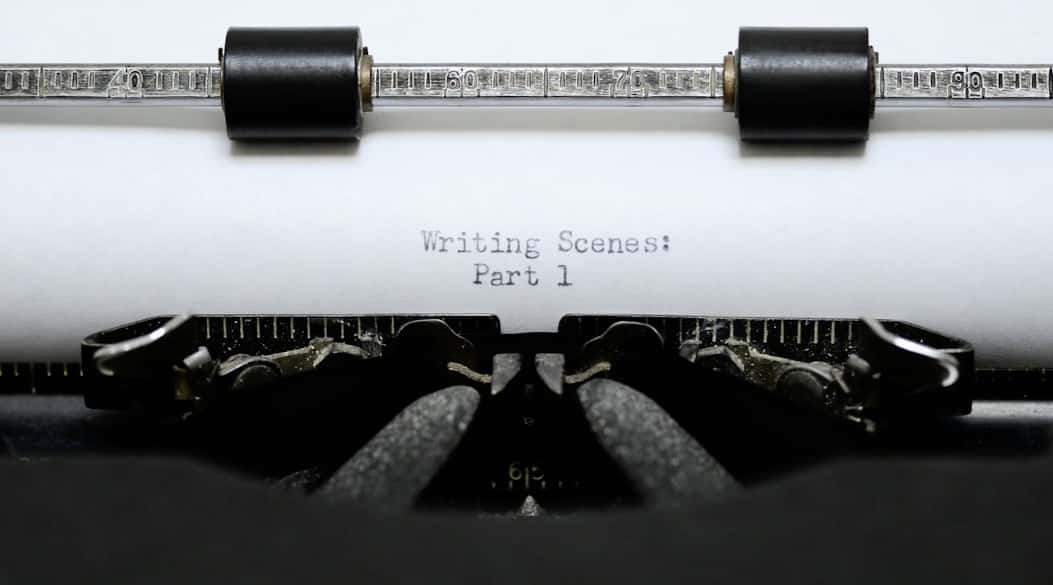In this Aaron Sorkin
What I Liked About the Screenwriting Class
- Fundamentals of Drama: Understanding drama through the lens of characters pursuing desires amidst challenges.
- Importance of Regular Writing: The emphasis on consistent writing to make the process feel manageable and less intimidating.
- Audience Engagement: Learning how to keep the audience interested by showing character traits through actions rather than mere dialogues.

My Experience Of Aaron Sorkin Masterclass
This screenwriting course taught me a lot. It showed me that drama is about characters wanting something and facing challenges to get it.
The course stressed writing regularly, which made the act of writing feel doable and less daunting. I learned the importance of keeping the audience interested, and how to show who the characters are through what they do, not just what they say.
Getting feedback was tough but helpful, and looking at well-loved screenplays helped connect the course lessons to real writing.
This course didn’t just teach me how to write better but also helped me understand the personal touch and self-exploration that comes with telling stories.
About Aaron Sorkin’s
Aaron Sorkin is an award-winning writer and producer whose career spans over 25 years. He wrote the screenplay for The Social Network, which earned him an Oscar nomination and five Primetime Emmy nominations.
He was nominated for the Writers Guild of America Award for Outstanding Drama Series twice, winning once for The West Wing.
In addition to writing for film and TV, he co-created Studio 60 On The Sunset Strip, which garnered three Emmys and one WGA Award.
He directed the feature adaptation of Moneyball, starring Brad Pitt and Jonah Hill, and the HBO miniseries The Newsroom.
He is currently working on the script for a third feature film based on the life of Phil Spector, starring Al Pacino. He has a wealth of experience in the industry so what can we expect from his
Inside Aaron Sorkin Masterclass
Aaron Sorkin’s
The following is the list of all the Masterclass subscription packages.
Individual
1 device
No offline mode
1 Device you can watch
Download for Offline viewing
All 200+ classes across 11 categories
Access to Sessions by
Watch on your computer, TV, phone, or tablet
Bonus class guides & content
Duo
2 devices
Offline mode
2 Devices you can watch
Download for Offline viewing
All 200+ classes across 11 categories
Access to Sessions by
Watch on your computer, TV, phone, or tablet
Bonus class guides & content
Family
6 devices
Offline mode
6 Devices you can watch at
No Download for Offline viewing
All 200+ classes across 11 categories
Access to Sessions by
Watch on your computer, TV, phone, or tablet
Bonus class guides & content
Style
Talking directly to the camera, Aaron Sorkin creates the impression that you’re having a one-on-one lesson with him, while clips from his screenplays occasionally break up the talking and demonstrate the points he’s making, such as the importance of research.
- Learn from the best!
- New classes added every month
- 180+ classes to choose from
"Bored of TV, check out this Incredible content and cast"
Lessons 1 & 2
After an introduction, the first proper lesson kicks off with a discussion on how to come up with a logline. This is followed by tips on structuring a story, character development, plotting, and researching.
Aaron starts by explaining what we need to set out before we start writing: obstacle and intention.
In doing so, he introduces some terms that will help us understand how to make sure our stories are intentional and avoid getting stuck in the middle of obstacles.
He dives straight into what he wants to accomplish here and explains why it matters. Then, he gives us some tools to use to figure out what our intentions and obstacles are.
We’ll find out how to identify both, and how to see where we need to improve.
Story Ideas
Aaron Sorkin’s
You’ll learn about the “baseball pitch,” a metaphor he uses to describe what happens when someone catches onto an idea. He breaks down the steps to identifying an idea and helps you to see if you’re on track.
Developing Characters and Research
In Lesson 2 we discussed the importance of developing characters. In this lesson, Aaron explores what it takes to develop a character, and how to do it effectively.
We start out looking at the difference between creating a character and developing a character.
Then, we look at some of how you can use intention and obstacles to develop characters. Finally, we explore the role that actors play in bringing characters to life.
Aaron talks about the two different kinds of research you can do and what you gain from each. He emphasizes the importance of talking to people and finding networks of stories. He gives an example of doing this while researching Steve Jobs.

Audience
Aaron discusses how he communicates with his audiences because he utilizes similar methods to those used in art such as Seurat’s.
Story Rules
Aaron shares his thoughts on how to read a screenplay, and why it’s important to know the rules of storytelling. He explains the difference between “rules” and “guidelines.”
He uses examples of classic stories to explain the concept of drama. He says that while you don’t want to follow every single guideline, knowing the basic rules helps you understand how to tell a story.
Dramatic Arc

The course continues with his discussion of structure and narrative. He begins by explaining the difference between a screenplay and a film school, and why he prefers to write screenplays rather than films.
Next, he explains what a dramatic arc is, and how it relates to the three basic elements of storytelling: plot, character development, and conflict.
Finally, he teaches us how to establish the rules of drama—the things that are true in every story—and apply those principles to our work.
Good Writing Habits

In this lesson, Aaron discusses his writing process. He describes what tools he uses and how he organizes his notes.
He also talks about his outline approach and offers some advice on how to get started. In Lesson 11, he shows you how to write a good logline.
In Lesson 12, he demonstrates how to write an effective elevator pitch.
Finally, in Lesson 14 he teaches you how to create a winning pitch to Hollywood executives.
Workshops
Workshops cover a large part of the
After the group has finished their read-through Aaron focuses on giving feedback and discussing what works well and what could improve. He tells them what they did well and what they need to work on.
Scene Writing

Aaron shares his approach to writing scenes. This lesson focuses on the purposeful use of movement within scenes to better tell the story. Aaron explains why we need to move between scenes and how to best make those transitions happen.
Next, he provides several real-world examples from popular TV shows to demonstrate how he applies this technique.
Writing Interesting Dialogue
Aaron shares how dialogue is just as important as action. It’s even more important. And he explains why.
We learn about the difference between good and great dialogue, and Aaron shares his favorite example of compelling dialogue. Plus, we hear about the challenges of writing dialogue and see some examples of his work.
Rewrites
In Lesson 26, we are taught how to rewrite our scripts. We learn why it’s important to rewrite, and how to go about doing it effectively.
Sorkin’s class also covers some of the most common mistakes people make while rewriting, such as overusing clichés, adding too many words, and creating unnecessary subplots.
Aaron explains the importance of knowing where your story is going before you start writing, and how to determine whether something serves the story or not.
- Learn from the best!
- New classes added every month
- 180+ classes to choose from
"Bored of TV, check out this Incredible content and cast"
Is It Aaron Sorkin MasterClass Worth It?
This
The practical advice on character establishment and effective exposition usage are among the key takeaways that highlight the value of this course. Through engaging and insightful lessons, Sorkin not only educates but inspires, making this MasterClass a valuable investment for aspiring screenwriters.
What Did Others Think of The Class?
“Not only did I learn, but I was entertained. Sorkin is a pretty cool and humble dude. It didn’t make me a pro writer, but it helped reinforce my foundations and have a tighter grasp on what screenwriting is.” Source
“Not worth it. He talks hour upon hour about his process rather than teaching a process – big difference. He also says “Um” every three words. It becomes incredibly grating.” – Tone_Scribe
Alternatives to Aaron Sorkin Masterclass :
Here are some other related classes that are well worth taking after the Aaron Sorkin
- Salman Rushdie Masterclass
- David Sedaris Masterclass
- Malcolm Gladwell Masterclass
- Aaron Sorkin
Masterclass - Neil Gaiman Masterclass
Werner Herzog Teaches Filmmaking:
Explore the creative and technical aspects of filmmaking with legendary director Werner Herzog, known for “Grizzly Man” and “Fitzcarraldo.” Herzog shares his unique approach to documentary and feature filmmaking, storytelling, and navigating the industry.
Martin Scorsese Teaches Filmmaking:
Learn from the illustrious director Martin Scorsese, the genius behind “Taxi Driver” and “Goodfellas.” This course delves into the art of directing, cinematography, and storytelling from one of the most influential filmmakers of our time.
Ron Howard Teaches Directing:
Acclaimed director Ron Howard, known for “A Beautiful Mind” and “Apollo 13,” offers insight into the world of directing. Learn about camera techniques, working with actors, and the creative process of bringing a story to life on screen.
What does Aaron Sorkin teach in his Masterclass ?
In his
Final Conclusion Of Aaron Sorkin Masterclass Review
The Aaron Sorkin
If you already have experience, then you will still find this class useful. You will be able to take away valuable lessons that will help you improve your craft.
Frequently Asked Questions
Is Aaron Sorkin MasterClass worth it?
Aaron Sorkin’s MasterClass offers valuable insights into screenwriting. With lessons covering character development, dialogue, and storytelling, it’s a great opportunity to learn from a master
Is MasterClass worth it for screenwriters?
MasterClass can be valuable for screenwriters due to its high-quality instructors and comprehensive lessons
Are screenwriting courses worth it?
Screenwriting courses can be valuable for aspiring writers. They offer structured learning, feedback, and networking opportunities




